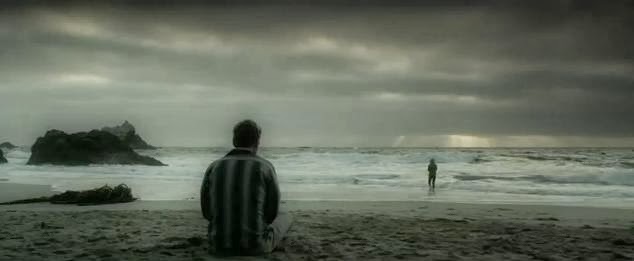I’m not sure why the film version of Big Sur exists, and the movie itself—directed by Michael
Polish—doesn’t seem to know why, either. This is a meandering adaptation of
Jack Kerouac’s most self-questioning work, one that gives us glimpses into the
man’s aimlessness and recklessness but not a full sense of it. Everybody
frolics in nature a lot and has vaguely philosophical things to say, but an
all-encompassing sense of the beat movement, or of Kerouac’s intense jadedness?
Big Sur is not it.
The film, which stars Jean-Marc Barr as a slightly pudgy,
round-faced Kerouac pushing 40, with noticeable wrinkles and a sense of
permanent malcontent, adapts the same-named novel by Kerouac. Three years after
the publication of On the Road, which introduced readers to Kerouac as a
20something traveling the country, engaging in spontaneous drinking and drug
use and sex, Kerouac was “bored and jaded,” working on Big Sur, a novel about his time spent struggling with his status as
“the embodiment of this new generation.” But, as his increased drinking and
isolation suggested, Kerouac didn’t really want the notoriety.
Or did he? Kerouac was simultaneously a dreamer and a self-hater,
the kind of man who loved nature for a few days but then never wanted to see it
again, and this movie pounds that over your head. The result, though, isn’t
greater insight, but a sense that Kerouac’s prose really, really doesn’t lend
itself to the big screen. Not at all.
The novel itself is a memoir but with fake identities for
Kerouac and his friends; the film does away with that and just calls everyone
by their real names. There’s Kerouac, friend Neal Cassady (Josh Lucas), Neal’s
wife Carol (Radha Mitchell), Neal’s mistress Billie (Kate Bosworth), and other
Beat figures like Lawrence Ferlinghetti (Anthony Edwards), Michael McClure
(Balthazar Getty), and Lew Welch (Patrick Fischler). They all get together and
drink and have sex and talk about writing and read their poetry and critique
one another and get sick of each other and stare at nature and then miss each
other and then get together and drink and have sex and talk about writing and
read their poetry and critique one another and get sick of each other.
Literally, this is the entire movie.
It would be different, maybe, if there wasn’t such a
disparity between the natural locations Polish films and the actual
performances from his actors, but the former is so beautiful and the latter so
lackluster that it’s impossible not to notice. Most of the film is set in
Lawrence’s cabin in the middle of Big
Sur, where Kerouac gets away from it all; those scenes of natural
purity—fog rolling through majestic trees, the glowing green of a forest in the
afternoon sunlight, waves crashing upon the beach, huge rocks jutting out of
the ocean—are entrancing. And Polish uses those best of all in capturing the
monotony Kerouac craved but couldn’t commit to; one sequence, when Polish cuts
between scenes of the night stars, Kerouac cooking bacon, Kerouac setting out a
plate of apple and chocolate for a mouse who lives in the cabin, the ocean,
Kerouac typing, then the stars again, then Kerouac walking through the forest,
then the ocean again, then typing, then the ocean again, makes real the pattern
the writer wanted to create for his life but couldn’t fulfill. It’s
effective—but then the movie goes on for another hour.
Barr isn’t necessarily the weakest link here, but Polish’s
choice to have him narrate much of the book over the scenes of the film begs
the question, “Why make a movie at all if you’re going to lean on the book so
heavily?” Lucas isn’t at all the mix of energy and chaos that he should be as
Neal Cassady; Mitchell has very little to do; and Bosworth is reduced to going
topless, falling for Kerouac, and eventually delivering heavy-handed dialogue
like, “You withhold your love” and “You give up so easy to discouragement.” Those
things read well, but don’t work as actual lines from actual actors pretending
to be actual people.
Ultimately, Big Sur
demonstrates the limitations of Kerouac’s text, how personal it is to each
reader and how unsatisfactory it feels on the big screen, something we realized
with the recent lackluster adaptation of On
the Road by director Walter Salles and which is furthered with this film. “I
see myself as just doomed,” Barr says as Kerouac, but it’s unfortunate that
such a sense of disappointment envelops the whole film, too.
Rating: 1.5 out of 5
Guttenbergs















